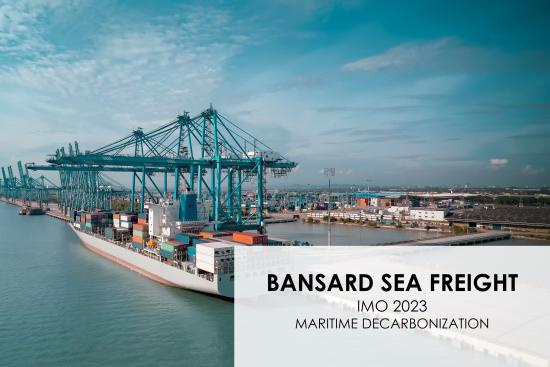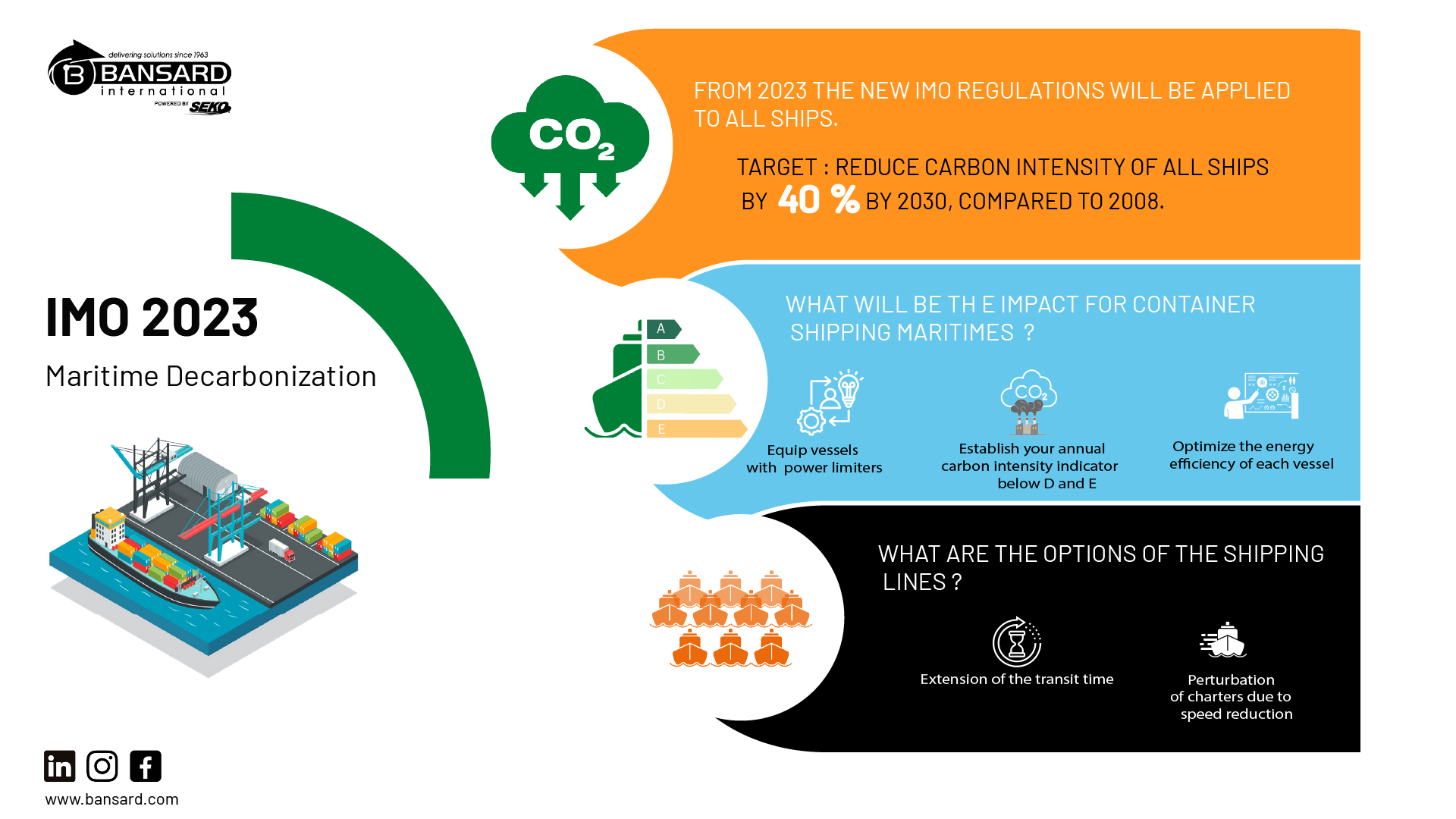The International Maritime Organization (IMO), the specialized agency of the United Nations responsible for ensuring the safety and security of maritime transport and preventing marine pollution from ships, has defined new requirements to reduce international maritime carbon emissions. From January 2023, companies will have to comply with both technical measures (design, equipment) and operational measures (energy efficiency).

What are the new regulations and impacts on international shipping?

REVIEW SINCE THE LAST REFORMS IMO 2020
The entry into force of the IMO 2020 reforms, limiting the sulphur content of fuel used on board ships to 0.50% m/m, has resulted in significant environmental and human scale improvements on maritime shipping lanes.
According to the IMO, sulphur oxide emissions from ships have decreased by 77% compared to 2020, the equivalent of 8.5 million tons of sulphur oxides. In addition, according to NASA (National Aeronautics and Space Administration) air pollution from shipping has jointly decreased. This is due to the use of alternative fuels such as liquefied natural gas (LNG) or methanol, which could help companies meet the challenges of shipping costs.
These excellent results prove that international transport can be reconciled with sustainable development.
WHAT ARE THE NEW REGULATIONS OF THE IMO 2023
To achieve a 40% reduction in carbon emissions by 2030 compared to 2008, shipping companies are required to:
- The Energy Efficiency Index of Existing Vessels (EEXI) which is based on their technical design such as vessel type, date of creation, size and according to the baseline. Non-compliant vessels will have to upgrade their engines to continue to travel.
- The Carbon Intensity Indicator (CII), which is annual and scalable to 2024, is a link between GHG (Greenhouse Gas) emissions and the ratio of cargo carried to distance traveled. By 2023, all vessels must have an established CII and will receive a graded grade from A to E, where A is the best.
Ships with 3 consecutive years of D class or one year of E class will be required to implement a corrective action plan to achieve A, B or C grades.
Indeed, the IMO has a target to reduce carbon emissions from international shipping by 40% by 2030 and 70% by 2050.
- Have a mandatory Ship Energy Efficiency Management Plan (SEEMP) to optimize the energy efficiency of each vessel: better voyage planning, more frequent cleaning of the ship's underwater parts and propellers, installation of new waste heat recovery systems or installation of a new propulsion system, for example.
To reduce carbon emissions and improve energy efficiency, companies and vessel operators have several options, including optimizing operations, retrofitting vessels with energy-saving technology and switching to low-carbon fuels.
WHAT ARE THE IMPACTS ON INTERNATIONAL SHIPPING?
To comply with IMO requirements, shipping companies will have to assess and bring their vessels into compliance if necessary.
On the one hand, the impacts to be expected are economic with a possible increase in shipping costs to help pay for new technologies and the price of biofuels.
On the other hand, organizational impacts such as :
- The detention of old vessels for compliance
- A potential decrease in capacity due to the reduction in speed
- An increase in transit time, with disparities between routes.
- Disruption of charters due to the reduction in speed to reduce fuel consumption.
For more information, contact us at sales@bansard.com
Sources
+ New measures adopted to reduce GHG emissions from shipping (imo.org)
+ IMO works to reduce greenhouse gas emissions from ships (imo.org)
+ Reducing Greenhouse Gas Emissions from Ships (imo.org)
+ NASA Study Finds Evidence That New Rule Reduced Shipping Air Pollution | NASA
+ How the 2023 carbon rules could change the game for shipping contracts



